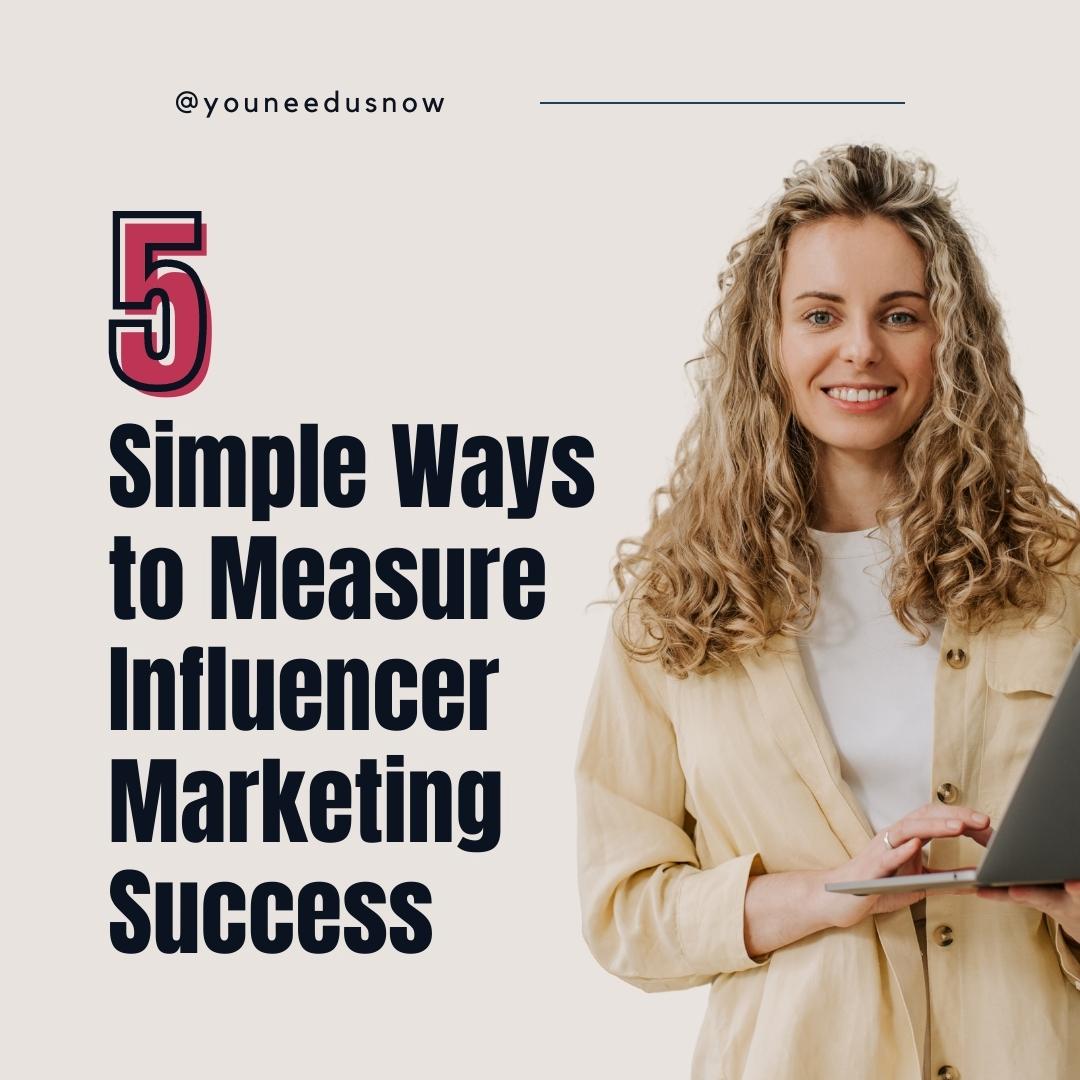1. Introduction
Welcome to the dynamic and ever-evolving world of influencer marketing, where authenticity meets strategy, transforming how businesses and influencers collaborate to create compelling narratives. “Demystifying Influencer Marketing: A Comprehensive Guide for Businesses” delves deep into this intriguing marketing approach, unearthing its core principles and burgeoning significance in today’s digital landscape. Whether you’re a burgeoning startup or an established brand, understanding influencer marketing is paramount to navigating the digital marketplace.
As we embark on this explorative journey, we will dissect the intricate layers of influencer definition and unravel the nuanced contrasts between influencer marketing vs traditional marketing. Not just that, we aim to demystify the often-daunting aspect of budgeting for influencer marketing, ensuring that businesses of all scales can harness the power of this marketing paradigm effectively. At the heart of our guide are the pioneering YNUN influencer marketing strategies, a testament to the innovation and efficacy that YNUN brings to the table.
This comprehensive guide is not just a repository of information; it’s a strategic toolkit designed to equip businesses and influencers alike with the knowledge and insights needed to forge successful, impactful collaborations. So, prepare to immerse yourself in a world where influence is not just about reach but about resonating authentically with audiences, driving views, and valuable engagement. Welcome to the journey of mastering influencer marketing – a blend of art, science, and strategic acumen.
1.1. Understanding the Basics of Influencer Marketing
In the heart of influencer marketing lies a simple yet profound concept: leveraging the influence of individuals to amplify brand messages. This strategy capitalizes on the trust and rapport influencers have built with their followers. Unlike traditional marketing, which often casts a wide net, influencer marketing focuses on specific audience segments, making the message more relevant and personalized. The essence of this approach is not just about reaching an audience but engaging with them through a voice they trust and follow.
1.1.1. Definition of Influencer Marketing
Influencer marketing is the strategic collaboration between brands and individuals with a significant online presence. It’s about brands partnering with influencers to promote products or services to their dedicated followers. This marketing technique not only increases brand awareness but also boosts credibility. Influencers, with their authentic content and engaged audiences, act as credible sources of information, bridging the gap between a brand and its target audience.
1.1.2. Relevance of Influencer Marketing in Today’s Digital Age
Influencer marketing offers a refreshing alternative in today’s digital age, where consumers are bombarded with advertisements. It provides a more organic and genuine connection with the audience. Influencers, being content creators, know how to present a brand in a way that’s both appealing and relatable to their followers. This relevance is underscored by the shift in consumer behavior, where trust and authenticity in marketing are increasingly prized.
2. The Rise of Influencer Marketing
The rise of influencer marketing is a response to the changing landscape of consumer engagement. With the decline in the effectiveness of traditional advertising and the surge in social media usage, brands are turning to influencers to reach their audiences where they spend most of their time: online. Influencers who can sway opinions and drive engagement have become vital assets for brands looking to connect with their audience meaningfully.
2.1. Influencer Marketing vs Traditional Marketing
When comparing influencer marketing vs traditional marketing, several key differences emerge. Traditional marketing often relies on one-way communication from brand to consumer, whereas influencer marketing fosters a two-way dialogue. The interactive nature of influencer marketing allows for a deeper connection with the audience. Moreover, while traditional marketing can be costly and complicated to measure, influencer marketing offers more cost-effective and trackable solutions.
2.1.1. Comparing Costs and ROI
Influencer marketing often presents a more favorable scenario in comparing costs and ROI than traditional marketing. With lower upfront costs and higher engagement rates, influencer campaigns can yield a significant return on investment. Brands can target specific demographics with tailored messages, leading to higher conversion rates and more effective spending.
2.1.2. Audience Reach and Engagement
The power of influencer marketing lies in its ability to reach and engage specific audiences. With their niche followings, influencers can tap into segments that brands might need help to reach through traditional means. This targeted approach results in higher engagement rates, as the audience is more invested in the content that resonates with their interests and lifestyles.
3. Types of Influencers
Influencers come in various forms, each with their unique appeal and audience. Understanding these types is crucial for brands to identify the right influencer for their campaign. The categories range from mega influencers with millions of followers to micro-influencers who may have a smaller following but boast higher engagement rates.
3.1. Social Media Influencers: A Closer Look
Social media influencers have gained a substantial following on platforms like Instagram, Facebook, and YouTube. They are known for their content creation skills and ability to engage with their audience. These influencers vary in size, from macro-influencers with large followings to micro-influencers who cater to niche audiences.
3.1.1. Instagram Influencers: Who They Are and What They Do
Instagram influencers are known for their visually appealing content and storytelling skills. They range from fashion and beauty gurus to travel enthusiasts and foodies. These influencers leverage Instagram’s features, like Stories and Reels, to create a more immersive and engaging experience for their followers.
3.1.2. YouTube Influencers: Understanding Their Role
YouTube influencers are content creators who have built a substantial audience on the platform. They are known for their in-depth videos, ranging from tutorials and reviews to vlogs and educational content. Their long-form content allows for a deeper dive into topics, creating a more comprehensive and engaging experience for viewers.
3.2. Bloggers and Vloggers: Importance in Influencer Marketing
Bloggers and vloggers play a pivotal role in influencer marketing. They provide detailed, narrative-driven content, which can be incredibly effective for storytelling and brand messaging. Their platforms allow for a more in-depth exploration of topics, making them ideal for campaigns that require detailed explanations or demonstrations.
3.2.1. Fashion Bloggers: Impact and Influence
Fashion bloggers have a significant impact on the industry. They showcase the latest trends and offer insights into how they can be styled and incorporated into everyday wear. Their influence extends from inspiring individual style choices to shaping fashion industry trends.
3.2.2. Tech Vloggers: Their Role in Influencer Marketing
Tech vloggers are instrumental in the tech industry, offering reviews, unboxings, and tutorials. Their content helps demystify technology, making it more accessible to the average consumer. They are crucial in influencing purchasing decisions by providing detailed and honest reviews of tech products.
4. Choosing the Right Influencer for Your Brand
Selecting the right influencer is a critical step in the success of an influencer marketing campaign. It’s about balancing an influencer’s reach and alignment with the brand’s values and target audience. A well-chosen influencer can significantly enhance a brand’s visibility and credibility.
4.1. Aligning Influencers with Brand Values
The alignment of an influencer with a brand’s values is vital to a successful partnership. Brands should look for influencers whose image, audience, and content style resonate with their ethos. This alignment ensures that the influencer’s endorsements feel authentic and credible to their audience.
4.2. Assessing Influencer’s Reach and Engagement
Evaluating an influencer’s reach and engagement is crucial in determining their effectiveness. Reach indicates the audience size that will be exposed to the campaign. At the same time, engagement measures how actively this audience interacts with the influencer’s content. A combination of both is ideal for a successful influencer marketing campaign.
5. YNUN Influencer Marketing Strategies
YNUN is redefining the influencer marketing landscape with innovative strategies that build impactful connections between brands and influencers, fostering collaborations that transcend traditional marketing methods.
5.1. Embracing User-Generated Content
Central to YNUN’s strategy is the emphasis on user-generated content (UGC). This approach leverages the authenticity and relatability of content created by real users and influencers. By encouraging influencers to share their genuine brand experiences, YNUN fosters a deeper connection between brands and their target audiences. This form of content strengthens brand credibility and ensures that the brand’s message resonates with the audience on a more personal level. Moreover, UGC acts as a catalyst for community building, transforming customers and influencers into brand advocates. This strategy is particularly effective in an era where consumers value transparency and authenticity above overt marketing tactics. YNUN’s platform is adept at integrating UGC, making it a cornerstone of effective influencer marketing campaigns, thereby ensuring engagement and trust in a discerning digital world.
5.2. Streamlining Influencer Collaborations for Scale
YNUN’s platform revolutionizes how businesses connect with influencers, drawing inspiration from the efficiency of platforms like Uber. By enabling businesses to post detailed “Collab Requests,” YNUN simplifies the traditionally complex process of influencer collaboration. This innovative approach allows companies to specify their campaign needs, target influencer profiles, and desired outcomes in a single, comprehensive request. As a result, the need for extensive, time-consuming communication is significantly reduced. Influencers can apply directly to these collab requests, aligning their expertise and audience with the brand’s objectives. This streamlined process saves time and allows businesses to work with various influencers at scale. The ability to manage multiple influencer collaborations effortlessly is a game-changer, particularly for campaigns requiring a broad reach across multiple demographics and niches. YNUN’s platform is thus a powerful tool for brands looking to maximize their influencer marketing impact efficiently.
5.3. Strategic Influencer Matching and Comprehensive Campaign Management
YNUN leverages advanced AI technology for strategic influencer matching, ensuring that each collaboration is not just a match but a perfect alignment of brand values, audience demographics, and content style. This precision in pairing brands with the right influencers is fundamental to the success of any influencer marketing campaign. Beyond just matching, YNUN provides a comprehensive campaign management platform. This all-encompassing tool allows brands to effortlessly oversee every aspect of their influencer marketing campaigns – from initial influencer outreach to final content approval and performance analysis. The platform’s user-friendly interface simplifies the management of complex campaigns, making it accessible even to those new to influencer marketing. Additionally, YNUN’s approach includes continuous support and guidance, ensuring that each campaign reaches its goals and contributes to the long-term growth and success of the brand.
5.4. Data-Driven Insights and Analytics
YNUN strongly emphasizes analytics and measurable results in today’s data-centric marketing world. Our platform provides comprehensive real-time data, offering brands insights into various aspects of their campaigns. These include engagement rates, reach, conversion rates, and more. By tracking these metrics, brands can gauge the effectiveness of their influencer collaborations and make data-driven decisions to enhance future campaigns. This focus on measurable outcomes is essential for understanding the return on investment in influencer marketing and continuously refining strategies to maximize impact. YNUN’s commitment to data-driven insights ensures that brands run campaigns, learn from each initiative, adapt, and evolve in an ever-changing digital landscape.
5.5. Adaptation to Emerging Trends and Technologies
In an industry characterized by rapid changes and emerging trends, YNUN remains at the forefront, continuously evolving its strategies to stay ahead. We recognize that staying relevant in the influencer marketing space requires agility, foresight, and a willingness to embrace new technologies and platforms. YNUN is committed to exploring and integrating the latest trends, from emerging social media platforms to innovative content formats, ensuring our strategies remain practical and cutting-edge. This proactive approach allows YNUN and the brands we work with to keep pace with the industry’s evolution and lead it. Our focus on innovation extends beyond just following trends; it’s about setting them and ensuring that YNUN’s influencer marketing strategies are always ahead of the curve, delivering unparalleled results for our clients.
6. Budgeting for Influencer Marketing
Budgeting is a critical component of any marketing strategy, and influencer marketing is no exception. It requires a careful balance between investment and expected returns. Factors to consider include:
- The scope of the campaign
- The type of influencers involved
- The desired outcomes
A well-planned budget ensures that resources are allocated effectively, maximizing the campaign’s impact.
6.1. Understanding Influencer Marketing Costs
The costs associated with influencer marketing vary widely, depending on the influencer’s reach, engagement rates, and the complexity of the campaign. Micro-influencers typically command lower fees but can offer higher engagement. At the same time, with their extensive reach, macro-influencers may have higher costs but can provide substantial visibility.
6.2. Setting a Budget for Influencer Marketing
Setting a budget for influencer marketing involves assessing the brand’s financial capabilities and marketing objectives. It’s about finding the right balance between what you are willing to spend and the value you expect to receive. Brands should consider not just direct costs but also the potential return on investment, which includes increased brand awareness, customer engagement, and sales.
7. Measuring the Success of Influencer Marketing
Measuring the success of an influencer marketing campaign is crucial for understanding its impact and for refining future strategies. This involves tracking various metrics, from engagement rates to direct sales conversions. Effective measurement helps determine the ROI and make data-driven decisions for future campaigns.
7.1. Key Performance Indicators (KPIs)
Selecting the right Key Performance Indicators (KPIs) is essential for accurately assessing the effectiveness of an influencer marketing campaign. Common KPIs include engagement rate, reach, impressions, click-through rate, and conversion rate. These metrics provide insights into how well the campaign resonated with the target audience and drove specific actions.
7.1.1. Brand Awareness KPIs
Brand awareness KPIs measure how effectively an influencer marketing campaign has expanded a brand’s visibility. Metrics such as social media mentions, reach, and impressions indicate how many people have been exposed to the brand through the campaign.
7.1.2. Sales-Related KPIs
Sales-related KPIs focus on the direct impact of influencer marketing on a brand’s bottom line. These include metrics like conversion rate, click-through rate, and overall sales figures. Tracking these KPIs helps understand the direct financial return of the influencer marketing efforts.
8. The Future of Influencer Marketing
The future of influencer marketing is marked by continuous evolution driven by technological changes, consumer behavior, and media consumption patterns. Brands and influencers alike must stay abreast of these changes to remain adequate and relevant. This includes adapting to new platforms, embracing emerging trends, and continually refining strategies.
8.1. Upcoming Trends in Influencer Marketing
Upcoming trends in influencer marketing include:
- The rise of video content.
- The increasing importance of authenticity and transparency.
- The use of data analytics for more targeted campaigns.
We will likely see more collaborations between micro-influencers and brands as they offer highly engaged niche audiences.
8.2. Adapting to Changes in Influencer Marketing Landscape
Adapting to the changing landscape of influencer marketing involves being agile, innovative, and data-informed. Brands must be willing to experiment with new formats and platforms, engage with influencers in more meaningful ways, and leverage data to optimize their strategies. Staying ahead of the curve will be crucial to success in this ever-evolving field.
9. Conclusion: Maximizing the Potential of Influencer Marketing
In this comprehensive exploration of influencer marketing, we’ve navigated the intricacies of this dynamic strategy, from its fundamental concepts to the futuristic trends shaping its trajectory. We’ve delved into the definition and relevance of influencer marketing in today’s digital landscape, contrasting it with traditional marketing techniques and emphasizing its cost-effectiveness and enhanced audience engagement. The spotlight on various types of influencers, from social media stars to bloggers and vloggers, has illuminated the vast spectrum of voices capable of amplifying your brand’s message.
YNUN influencer marketing strategies have been a cornerstone, highlighting how tailored approaches lead to successful collaborations. We’ve underscored the importance of aligning these strategies with budgeting considerations, ensuring a sustainable and impactful campaign. Measuring success through key performance indicators has been stressed, providing a roadmap for assessing the effectiveness of your influencer marketing efforts.
9.1. Recap of Influencer Marketing Guide
In recapping this guide, remember that the essence of successful influencer marketing is in its ability to forge genuine connections between brands and their target audiences through the voices of influencers. The power of influencer marketing lies not just in the reach but in the resonance of authentic, engaging content. Your brand can effectively harness this potent marketing strategy by aligning with the right influencers, understanding the costs, and measuring the impact.
9.2. Final Thoughts on the Power of Influencer Marketing
So, what’s next for your brand in influencer marketing? As you ponder this, remember that YNUN influencer marketing strategies offer a pathway to navigate this landscape confidently. If you found value in this guide, share it with your network and consider how influencer marketing can elevate your brand. Explore related content on our website for further insights and tips on harnessing the power of influencer marketing.
Your journey in influencer marketing is just beginning, and the potential is limitless. How will you leverage this dynamic strategy to shape the future of your brand?



